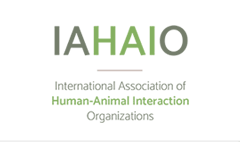Abstract
Animal- assisted interventions are increasingly used as a complementary therapy in clinical practice to support people with autism spectrum disorder (ASD), with promising outcomes compared to traditional therapies. Less is understood about the therapeutic benefits of more accessible and affordable small pet ownership for families with a child with ASD, alongside the pets’ welfare living in these homes. This study explored the experiences of cat ownership for young people with ASD from the perspective of their mothers during a time of transition generated by COVID-19. Semi-structured interviews were conducted with six mothers and transcripts analyzed using reflexive thematic analysis. Three themes were identified: “Sensory benefits with heightened emotions,” “Special bond between cat and child,” and “Learning through the relationship.” The results highlighted how cat ownership benefited cat and child, encouraging empathy and responsibility skills in children with ASD through the development of a reciprocated relationship between child and cat, while also providing a nurturing home environment for the cats in this study. The relationship and physical presence of each other provided sensory stimulation, a calming influence, and companionship for the children. In conclusion, cats with a sociable and easygoing temperament demonstrated multiple therapeutic benefits for children with ASD and should be considered as an accessible complementary home- based therapy for caregivers who are able to offer a nurturing home to a cat. Cats have the potential to play an important role in a family’s life, particularly for parents managing additional demands and whose children experience sensory overload while outside. Given the importance of cat ownership for children with ASD in this study, this could enhance engagement with clinical practitioners through a shared cat-focused dialogue benefiting the wider development and well- being of children with ASD and their families.
Recommended Citation
Keville, Saskia; De Vita, Sophia; and Ludlow, Amanda K.
(2022)
"Mothers’ Reflections on Cat Ownership for a Child with Autism Spectrum Disorder During COVID-19,"
People and Animals: The International Journal of Research and Practice: Vol. 5
:
Iss.
1,
Article 8.
Available at:
https://docs.lib.purdue.edu/paij/vol5/iss1/8
Included in
Animal Studies Commons, Clinical Psychology Commons, Disability Studies Commons, Maternal and Child Health Commons, Other Psychiatry and Psychology Commons


